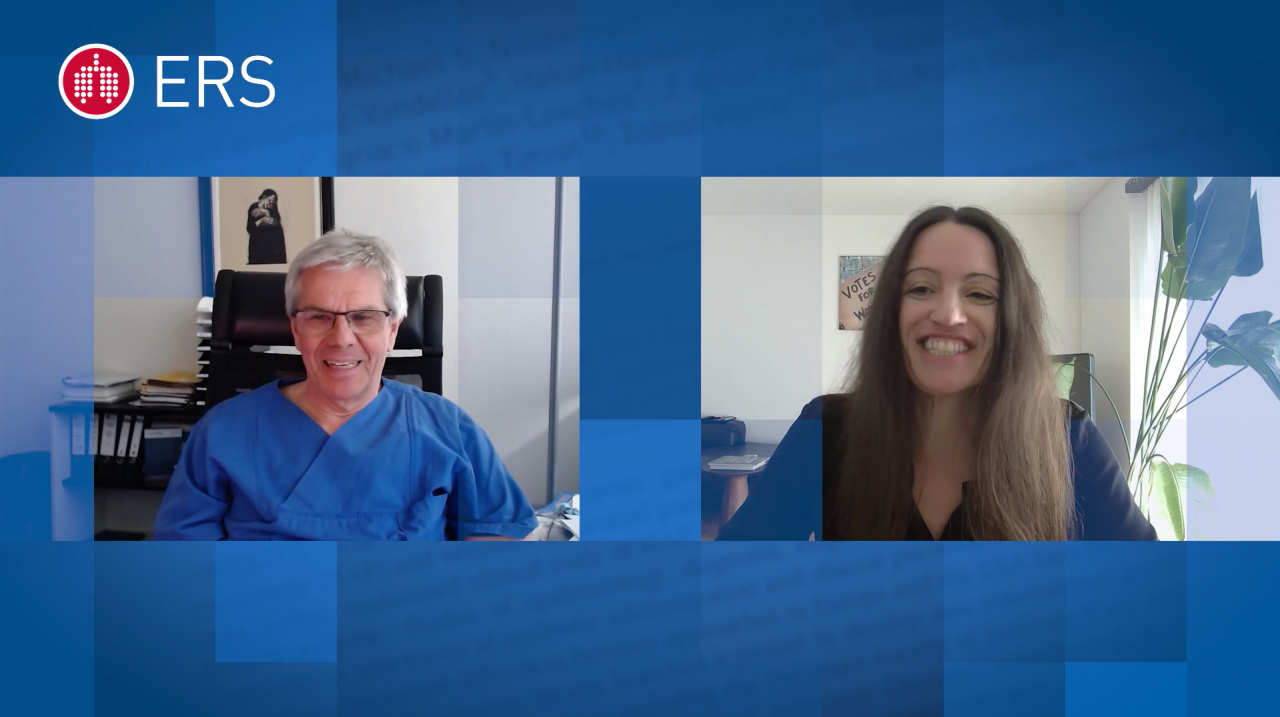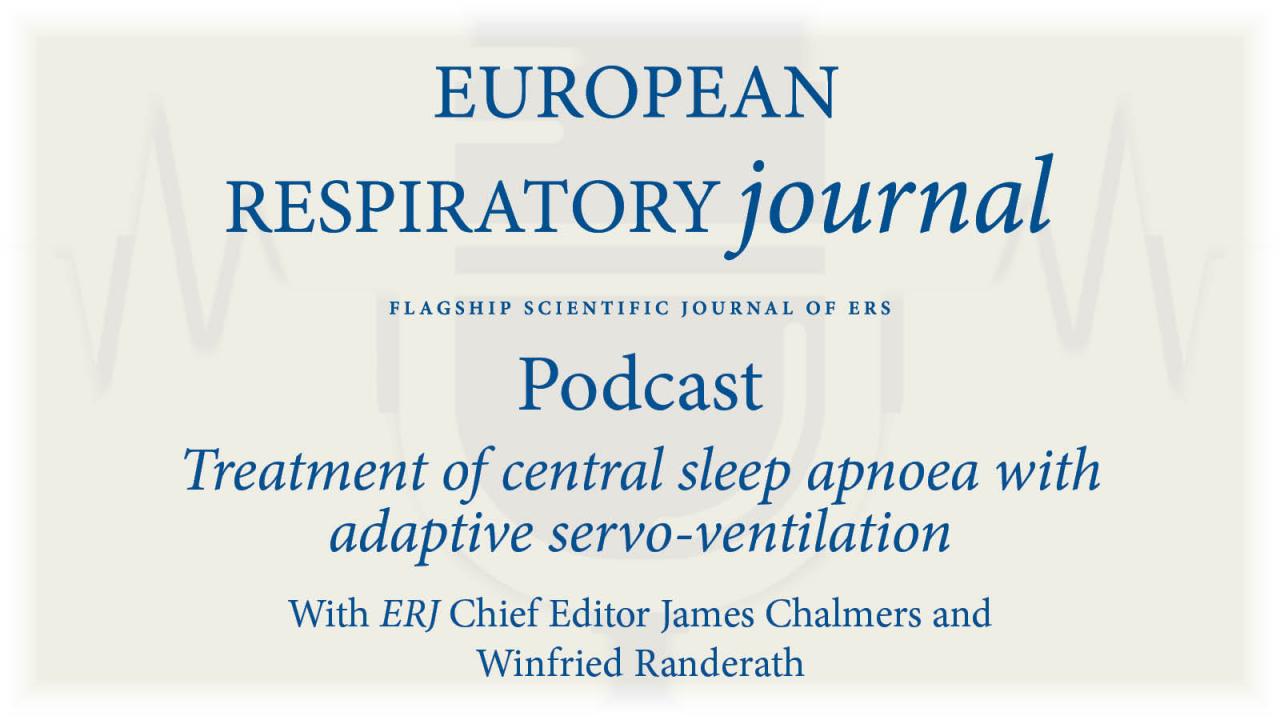All guidelines
European Respiratory Society and European Sleep Research Society Statement on the treatment of central sleep apnoea with adaptive servo-ventilation
Winfried J. Randerath, Sophia E. Schiza, Michael Arzt, Maria Rosaria Bonsignore, Raphael Heinzer, Carolina Lombardi, Robert Lyssens, Gianfranco Parati, Thomas Penzel, Jean Louis Pepin, Dirk Pevernagie, Silke Ryan, Luca Vignatelli, Esther I. Schwarz
Year:
2025
Type:
Statement
Produced by:
ERS / ESRS
European Respiratory Journal 2025 2500263; DOI: https://doi.org/10.1183/13993003.00263-2025
Adaptive servo-ventilation (ASV) has been considered effective in controlling various forms of central sleep apnoea (CSA) and also any additional obstructive sleep apnoea (OSA) component. However, after the publication of the SERVE-HF study, its use was restricted in patients with systolic heart failure and prevalent CSA and was withheld from many patients with symptomatic CSA. In the meantime, the devices have been further developed and the algorithms adapted, and there is new evidence from randomised controlled trials and observational studies that makes it necessary to re-evaluate some societies' statements on the use of ASV, especially in patients with heart failure and CSA and with the current ASV devices. This short statement is based on a review of the effect of ASV on hard cardiovascular endpoints, echocardiographic parameters and exercise capacity as well as on sleep architecture and sleep quality, symptoms and quality of life (QoL) in patients with CHF. The expert group concludes that ASV has positive effects on CSA and quality of life in various forms of CSA that current ASV devices have no negative effect on hard cardiovascular endpoints and that ASV has positive effects on patient-reported outcomes. Moreover, it is used by TF members after optimal treatment of the underlying disease and after an unsuccessful CPAP trial in patients with heart failure with preserved ejection fraction, but also in patients with LVEF 30-45%. In the latter group, however, initiation is performed in expert centres only. In severe systolic heart failure, ASV is sometimes evaluated in a palliative therapy concept for severely symptomatic patients with CSA.
Read more
Read less
Additional content

Guidelines in Focus

ERJ Podcast: Treatment of central sleep apnoea with adaptive servo-ventilation by ERS Publications Podcasts
